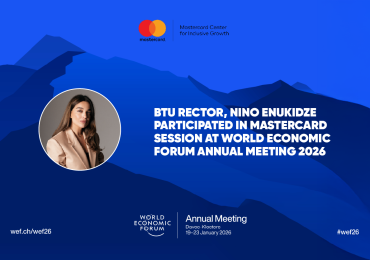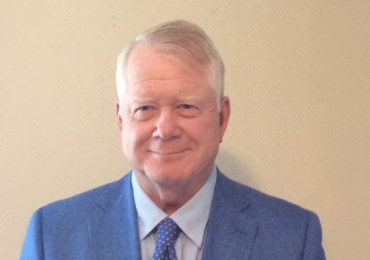Regulation. That word is not often associated with processes or procedures that enable business growth. Quite the opposite, it is most often associated with bureaucratic overreach and an impediment to business growth. Yet in the gambling industry, most companies believe that regulation is not only important but it is also required. Why is it that this industry seeks regulation when so many other industries wish for a reduction, if not outright elimination, of that oversight? This article will seek to answer that question both from the gambling industry in general and the local Georgian market.
When someone mentions gambling, many will immediately think of Las Vegas, Monaco or Macau – traditional gambling centres with rich and colourful histories. Today those bulwarks of gaming share the spotlight with other locations that have birthed hundreds of online gambling venues, such as Curacao, Gibraltar and Malta. They too don’t lack in colourful histories and whilst much younger, they are having a pronounced impact on the industry. Those locations have one thing in common – regulations. Whilst they may vary in-depth and breadth and whilst the political climate in each may be very different, they’ve all had stable requirements that were attractive to gambling companies and which generated booms for the local economies.
To understand why companies in the gambling industry want regulations – and let me be clear here, they want regulations that are logical, practical and commensurate with the state of the market – we need to go back and look at the history of gambling. Since the bulk of my career has been in the United States, I’ll use Las Vegas and the US market as my example and then tie it back to the Georgian market.
Las Vegas – A Regulatory Success Story
Gambling in Las Vegas started legally in 1931, and from the beginning, organized crime was very much a part of the gambling business. In those early years, a number of smaller casinos opened in Las Vegas with names that can only be found in history books. In the early 1940s, a number of ‘Las Vegas’ style resorts opened, fuelled by cheap electricity from Hoover Dam, and a combination of widely available organized crime money and limited legitimate business investments. The Las Vegas Strip was born.
In 1955 the Nevada legislature established the Nevada Gaming Control Board (NVGCB) with three main goals: to weed out organized crime; to establish a set of regulations for the issuance of gambling licenses and casino operations; and to establish a set of rules and regulations for tax reporting.
In 1966, just over a decade after the NVGCB was founded, Las Vegas saw an explosion of new casinos, cementing the Strip as the gambling mecca it has become known to be. A scant 6 years later, in 1972, Harrah’s Entertainment Inc. became the first gambling company to be listed on the New York Stock Exchange.
The founding of the NVGCB proved to be key to the growth of Las Vegas as the new licensing and regulatory framework meant that funding projects in Las Vegas were now a legitimate investment. Individual investors, banks and Wall Street took advantage of the opportunity. By the mid-1970s, the investors and visionaries that became part of Las Vegas saw the gambling industry there generating revenues in excess of $1 billion annually.
With the establishment of the NVGCB and the influx of clean investment capital, the Las Vegas casino ownership landscape shifted from one of single owners or partnerships to corporations who saw the regulatory framework and licensing process as making gambling a legitimate business. No longer referring to itself as the gambling industry, it became the gaming industry, reducing the potentially negative connotation of the word ‘gambling’. As the casinos grew into fully-fledged resorts, with hotels, world-class restaurants, theatres and top-notch nightclubs, it seemed natural for them to be seen as entertainment venues and part of the broader hospitality industry.
The NVGCB’s regulatory framework required that corporate officers had to be vetted and licensed, ensuring that any vestiges of the organized crime past were fully exorcised. Furthermore, the slot machines in the casinos were tested and certified by the NVGCB’s Technical Division, ensuring that they operated fairly and consistently, and complied with the established technical requirements. Table games were operated in compliance with controls set by the regulatory authority. In other words, gambling was conducted with integrity and fairness in accordance with published rules. This established a level of trust with players. They could trust that the games were fair, there was full transparency in terms of rules, and players had recourse against casino operators via the NVGCB.
The industry’s operators and suppliers saw that embracing regulations were a catalyst for growth beyond Nevada. Instead of arguing against regulation, they argued for it. These corporations started to lobby states to legalize gambling and to implement regulatory best practices and similar technical and operational regulations as had already been adopted. Being one of the highest, if not the highest, the regulated industry became the means by which gambling expanded in the US. New Jersey was the first state to legalize gambling outside of Nevada, passing the Casino Control Act in 1977 with the first casino opening in Atlantic City in 1978.
Georgia – A Success in the Making
There is no doubt that the Georgian gambling industry, largely starting in 1992, has been doing quite well. One has only to look at the number of Slot Clubs and Casinos and the number of online casinos to see that they’re thriving and employing thousands of people. However, it would be fair to say that regulation and oversight in Georgia have not been as robust as they can be and should be.
The government in Georgia is on a journey to implement regulatory best practices to help the industry grow by taking a page from what Nevada, and indeed the many other well-regulated jurisdictions worldwide, has so successfully done. The goal is a common one shared by all those jurisdictions – build trust through licensing, product certification, operational controls and protecting vulnerable individuals.
I use the word journey because the regulations have to be established in a logical and practical manner and their scope has to be commensurate with the state of the market. In Georgia, the journey started by passing a new gambling law and establishing a set of technical requirements. Operators and suppliers have to be licensed, and the gambling products they provide to players have to be certified by independent testing laboratories as meeting those technical requirements.
Georgia’s approach is identical to that of European and North American regulated jurisdictions and the technical requirements do not require anything, not in those countries’ requirements. This makes Georgia attractive to both operators and suppliers from around the world giving, their confidence that their products, already approved in other jurisdictions, will be approved in Georgia too. This measured regulatory approach is being largely embraced by operators and suppliers.
As with Nevada and Las Vegas, in particular, the establishment of a regulatory body, technical regulations and a licensing process in Georgia will yield positive results for the industry. A regulated environment is more attractive to companies who are licensed in other countries and who cannot afford to jeopardize those licenses by doing business in a poorly regulated jurisdiction. This approach appears to be working as more and more companies are expressing interest in establishing operations in Georgia or providing their products for the Georgian market. This is good news for the Georgian economy and for the Georgian business world. Casinos are accretive to a variety of industries whose support they need to operate. Likewise, Casinos, whether land-based or online, employ numerous individuals whose purchasing power increases thereby also adding to the positive economic impact.
We are still in the early stages and as Georgia continues on this journey, we should expect that the regulations will evolve to support both the industry’s growth and the government’s goals. With COVID hopefully becoming less prominent and summer just around the corner, we should see increasing gambling industry revenues which will fuel additional growth and further benefit Georgia.
Mr Pace is a seasoned gaming industry executive with a career spanning land-based casino operations,
slot machine manufacturing, gaming systems development, online gaming
and lottery technical operations and regulatory affairs at the local and federal levels internationally.
Mr Pace is a seasoned gaming industry executive with a career spanning land-based casino operations, slot machine manufacturing, gaming systems development, online gaming and lottery technical operations and regulatory affairs at the local and federal levels internationally.


















